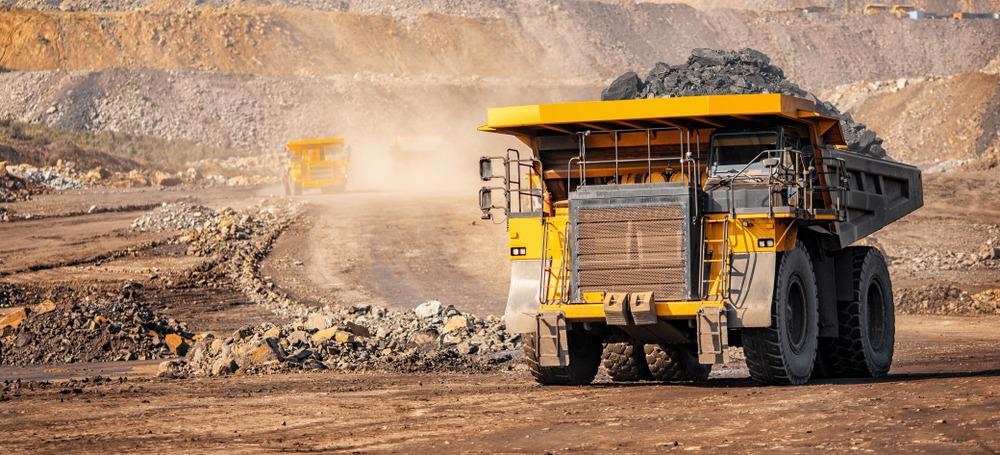In an article available as a pre-proof in the Journal of Molecular Liquids, an in-depth review of nanoparticles and their uses in the oil, mining and drilling industries was carried out.

Study: Nanoparticle Applications as Beneficial Oil and Gas Drilling Fluid Additives: A Review. Image Credit: ParilovShutterstock.com
Here, the many uses of nanoparticles were discussed along with major milestones that have been accomplished owing to advancements in material science, engineering and nanostructures.
Nanotechnology – An Atomic Leap to the Future
Nanotechnology is defined as the imaging, modeling, production, designing, measuring, characterization, and application of systems, devices and structures at the atomic level, leading to novel superior material behavior characteristics.
At the nanoscale, materials can exhibit distinct morphological, chemical, and biological features. The characteristics of single atoms and molecules may differ significantly from those of larger particles.
The fascinating quantum and topological phenomena that matter shows at the nanoscale are the sources of nanotechnology's interest.
In several industries, they improve the existing manufacturing processes, materials, and applications while also allowing for radically new ones.
As a result, current engineers and scientists are creating a huge variety of nanostructured materials to take advantage of their superior properties, such as higher strength, lighter weight, favorable light spectrum management, and increased chemical responsiveness, as compared to larger-scale counterparts.
Drilling Fluids and Nanoparticles
Drilling fluids are multi-component liquid systems that include emulsification, aeration, and suspended material and are tailored to specific subsurface purposes.
A closed-loop circulation system is used to move drilling fluid around a wellbore. This facilitates the movement of drilling fluid between surface equipment and the drill bit, as well as the return to rock cutting surface.
At the surface, the cuttings are removed from the fluids, and the cleansed fluids are recycled. To execute cost-effective and effective drilling procedures, drilling fluids should have the appropriate fluid properties.
Drilling fluid properties must be carefully maintained and monitored to fulfill a variety of critical jobs, such as trying to cool and lubricate the drilling bit surface.
Drilling fluids must have specific, suitable characteristics to properly perform these duties. Shear stress, viscosity, fluid loss and density are all significant properties to consider.
To this end, additives are used. Additives improve the characteristics of critical drilling fluids.
The sophistication of drilling fluids arrangements now in use to aid drilling in more hostile subterranean settings is reflected in the range of fluid additives.
Nanoparticles are now being studied as prospective drilling-fluid additives to improve specific characteristics.
Favorable Incline Towards Nanoparticles
Following breakthroughs in nanotechnology, numerous industries have been transformed, resulting in significant expenditures in nanomaterial research, development, and manufacturing. For instance, deploying nano-coatings and nano-sensors to prevent undesired deposits from sticking, upgrading material outlays to withstand corrosion, erosion, and boosting oil and gas recovery.
By drawing a comparison between different types of nanostructures used in the drilling, oil and gas industry, the researchers were able to arrive at the following conclusions: Aluminum Oxide and Silica are most widely used in the gas and oil industry, Al2O3 nanoparticles outperform Copper, Titanium and Silicon Oxide nanoparticles in H2O based drilling fluids, and that several nanoparticles impart desired properties to drilling fluids when used in a lower than 0.5% concentration.
Critical Claims
Despite the advantages of nanoparticle additions in drilling fluids, there are several obstacles to overcome to improve their absorption.
As the per-unit cost of nanoparticles is still high, it has a detrimental influence on economic viability. Furthermore, certain nanoparticles’ toxicity raises safety and environmental issues about their extensive use.
Key Takeaways
Drilling fluids with nanoparticle additions have more capabilities, especially in high-temperature/high-pressure circumstances. They also aid in the effective resolution of numerous issues that arise throughout the drilling process, as well as the regulation of fluid characteristics to fit operating requirements.
Nanoparticles also have an impact on a variety of drilling fluid parameters, like filtration, rheology, lubricity, thermal stability and cutting transport.
What to Look Forward To?
While nanoparticles are highly influencing different sectors in the industry, there still needs to be done a lot of work to bring the highly sought-after materials into a lower-end budget and to make them safer for the environment.
Even with this, one should be optimistic about the rapid progress in the field.
Reference
Al-Shargabi, M., Davoodi, S., Wood, D. A., Al-Musai, A., Rukavishnikov, V. S., & Minaev, K. M. (2022). Nanoparticle Applications as Beneficial Oil and Gas Drilling Fluid Additives: A Review. Journal of Molecular Liquids. Available at: https://www.sciencedirect.com/science/article/pii/S0167732222002628?via%3Dihub
Disclaimer: The views expressed here are those of the author expressed in their private capacity and do not necessarily represent the views of AZoM.com Limited T/A AZoNetwork the owner and operator of this website. This disclaimer forms part of the Terms and conditions of use of this website.